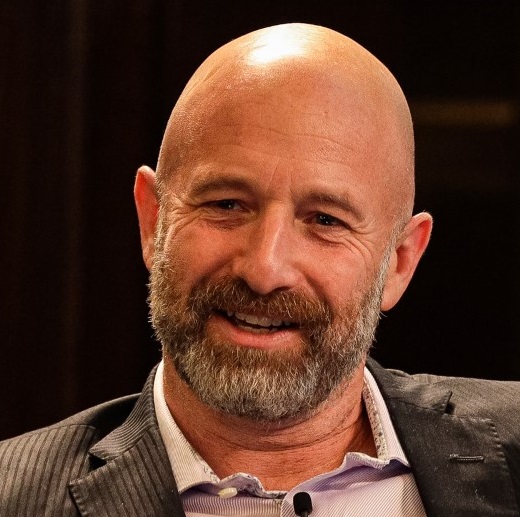Economists have long warned against price regulation in the context of network industries, but until now our tools have been limited to complex theoretical models. Last week, the heavens sent down a natural experiment so powerful that the theoretical models are blushing: In response to a new regulation preventing banks from charging debit-card swipe fees to merchants, Bank of America announced that it would charge its customers $5 a month for debit card purchases. And Chase and Wells Fargo are testing $3 monthly debit-card fees in certain markets. In case you haven’t been following the action, the basic details are here. What in the world does this development have to do with an “open” Internet? A lot, actually.
The D.C. Court of Appeals has been asked to consider several legal challenges to the FCC’s Open Internet Order. Passed in December 2010, the Open Internet Order was the regulatory culmination of an intense lobbying campaign by certain websites and so-called consumer groups to regulate the fees that Internet access providers such as Comcast or Verizon may charge to websites.
Although the challenges to the Open Internet Order largely concern the FCC’s authority to regulate Internet access providers and the proper scope of the regulations—for example, whether they should apply to wireline networks only or to all broadband networks including wireless—here’s to hoping that the rules are also judged according to the FCC’s public-interest standard. Along that dimension, the FCC’s experiment in price regulation clearly fails.
Just as Internet access providers bring together websites and users, banks provide a two-sided platform, bringing together merchants and customers in millions of cashless transactions. Because banking networks cost money to create, banks can’t be expected to provide their services for free. If you tell a bank that it can’t charge one side of a two-sided market—particularly when that one side (the merchant side) is less price sensitive than the other (the customer side)—then expect customer fees to rise. It’s not because banks are evil; it is because the profit-maximizing price charged to customers by a bank depends on the price charged to merchants.
Ignoring this economic lesson of two-sided markets, the Durbin Amendment to the Wall Street Reform and Consumer Protection Act instructed the Federal Reserve Board to cap swipe fees charged by banks to merchants. Prodded by consumer advocates to eliminate the fees entirely, the Fed cut the fees in half, to about 24 cents per transaction from an average of 44 cents per transaction. Paradoxically, the smaller the merchant fee, the larger is the debit fee—this is the “seesaw principle” of two-sided markets in action. Say hello to $5 monthly debit fees.
In a classic case of one regulation spawning another, now there is talk of regulating the banks’ debit-card charges. In response to the new debit fees, some members of Congress asked the Justice Department to investigate the major banks, suggesting that the higher fees resulted from a pricing conspiracy and not from their own bone-headed price regulation.
Months before the new debit fees came into effect, Bob Litan of the Brookings Institution predicted in a paper that “consumers and small business would face higher retail banking fees and lose valuable services as banks rationally seek to make up as much as they can for the debit interchange revenues they will lose under the [Federal Reserve] Board’s proposal.” As noted by Todd Zywicki in the Wall Street Journal, Litan’s prediction proved prescient.
Although both the Durbin Amendment and the FCC’s Open Internet Order are price regulations, there are important differences. Unlike the Fed’s rulemaking on swipe fees, the Open Internet Order was not directed by Congress. This shortcoming alone might be fatal for the Appeals Court. And unlike the Fed’s rulemaking, the FCC’s rulemaking regulates the merchant fee out of existence. Regulating prices below market-levels (as the Fed did) is one thing—regulating them to zero (as the FCC proposes) is beyond the pale.
Under the Open Internet Order, Internet access providers are banned from charging websites a surcharge for priority delivery. Indeed, the mere offering of such a fee to one website would be “discriminatory” and thus presumptively anticompetitive, even if the same offer were extended to other websites. Self-described public interest groups advocating for the Open Internet Order believe that if the smallest website in America can’t afford a surcharge for priority delivery, then no one should be allowed to buy it.
Assuming the FCC’s Order withstands legal scrutiny, the rules will clearly retard innovation among application developers: Why develop the next, killer real-time application if you can’t contract for priority delivery?
And if the Durbin Amendment is any guide, the effect of the Open Internet Order will be higher Internet access prices for consumers.
The same Bob Litan who accurately predicted price hikes in banking caused by price regulation made a similar prediction for broadband networks: “Even according to a theoretical model championed by net neutrality proponents, end users are unequivocally worse off under net neutrality regulation, as the end-user price of broadband access is always higher when ISPs are barred from raising revenues from content providers.” Will his sage advice be ignored by regulators twice in the same year?
The Appeals Court should force the FCC to defend the notion that the agency’s Open Internet Order is consistent with the public interest: If higher access prices and less innovation among application developers are the unintended consequences of an “open” Internet, then the FCC will fail on this score. With luck, the Open Internet Order will be seen as the ugly cousin of the Durbin Amendment, and the FCC’s experiment in price regulation will be curtailed.




